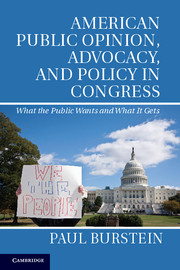2 - Policy Change
Published online by Cambridge University Press: 05 June 2014
Summary
It seems obvious that if we want to understand policy change, we should agree on what we mean by “policy.” That shouldn’t be a problem. Policy has long been studied by political scientists, sociologists, economists, historians, lawyers, scholars in other fields, and journalists. We could use their definition.
Unfortunately, they don’t have an agreed-upon definition precise enough to be useful. “Policy” is formally defined at the beginning of many textbooks, but researchers rarely pay attention to such definitions. Instead, they treat their subject as both broad and intuitively obvious – it has to do with things the government, or some part of a government, does, might do, or might decline to do, or the views of particular people as to what the government should do. In the final chapter of The Oxford Handbook of Public Policy (Moran, Rein, and Goodin 2008), Klein and Marmor (2008:892) call public policy a “chameleon concept” and write that they “define public policy quite simply. It is what governments do and neglect to do. It is about politics, resolving (or at least attenuating) conflicts about resources, rights, and morals.” While this type of definition is very common, as a guide to research it’s not very useful – it is too broad and too vague to be of much value.
- Type
- Chapter
- Information
- American Public Opinion, Advocacy, and Policy in CongressWhat the Public Wants and What It Gets, pp. 20 - 44Publisher: Cambridge University PressPrint publication year: 2014

